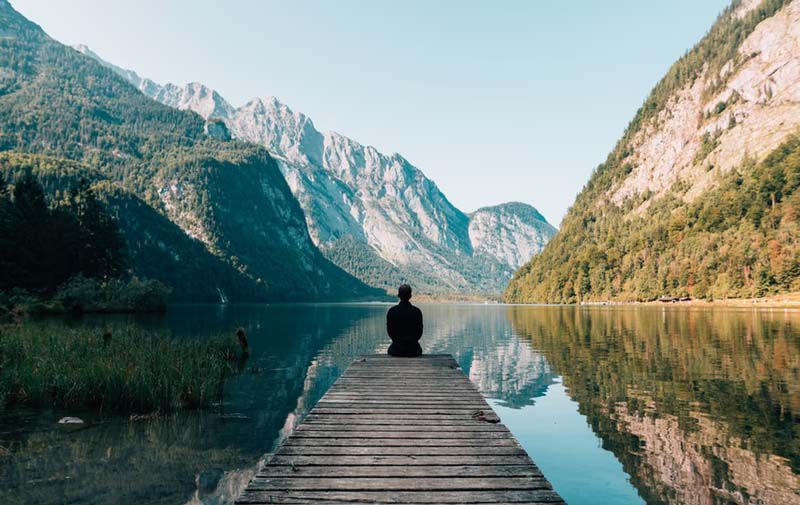![[feature] Relaxation Techniques: To Relieve Stress, Follow These Techniques](https://blogger.googleusercontent.com/img/a/AVvXsEgjUm1JhwiYXfbZjXo7ZE7f9-CF3w6MU552MpavD9yTicbWdUy73wSegAYSYc0L7AHKV-Wwsv_azgHAmeunTWFlzRTNSh_ZZ5glaQd8qGD07W-IiL8n5Z1gtd-pOMEPN6VdrXKFIXU5AKN0GbLL4hQRHObCr94xks3uXWpl1l-G-8z_CM1Rg2T27ng9iA=s16000-rw) |
| © S Migaj / Unsplash |
From Mayo Clinic
Relaxation techniques are a great way to help with stress management. Relaxation isn't only about peace of mind or enjoying a hobby. Relaxation is a process that decreases the effects of stress on your mind and body. Relaxation techniques can help you cope with everyday stress and with stress related to various health problems, such as heart disease and pain.
Whether your stress is spiraling out of control or you've already got it tamed, you can benefit from learning relaxation techniques. Learning basic relaxation techniques is easy. Relaxation techniques also are often free or low cost, pose little risk, and can be done nearly anywhere.
Explore these simple relaxation techniques and get started on de-stressing your life and improving your health.
The benefits of relaxation techniques
When faced with numerous responsibilities and tasks or the demands of an illness, relaxation techniques may not be a priority in your life. But that means you might miss out on the health benefits of relaxation.Read More: 10 Things to Do to Lower Your Risk of Dementia
Practicing relaxation techniques can have many benefits, including:
- Slowing heart rate
- Lowering blood pressure
- Slowing your breathing rate Improving digestion
- Maintaining normal blood sugar levels
- Reducing the activity of stress hormones
- Increasing blood flow to major muscles
- Reducing muscle tension and chronic pain
- Improving concentration and mood
- Improving sleep quality
- Lowering fatigue
- Reducing anger and frustration
- Boosting confidence to handle problems
To get the most benefit, use relaxation techniques along with other positive coping methods, such as thinking positively, finding humor, problem-solving, managing time, exercising, getting enough sleep, and reaching out to supportive family and friends.
Types of relaxation techniques
Health professionals such as complementary health practitioners, doctors and psychotherapists can teach various relaxation techniques. But if you prefer, you can also learn some relaxation techniques on your own.In general, relaxation techniques involve refocusing your attention on something calming and increasing awareness of your body. It doesn't matter which relaxation technique you choose. What matters is that you try to practice relaxation regularly to reap its benefits.
Types of relaxation techniques include:
- Autogenic relaxation. Autogenic means something that comes from within you. In this relaxation technique, you use both visual imagery and body awareness to reduce stress. You repeat words or suggestions in your mind that may help you relax and reduce muscle tension. For example, you may imagine a peaceful setting and then focus on controlled, relaxing breathing, slowing your heart rate, or feeling different physical sensations, such as relaxing each arm or leg one by one.
- Progressive muscle relaxation. In this relaxation technique, you focus on slowly tensing and then relaxing each muscle group. This can help you focus on the difference between muscle tension and relaxation. You can become more aware of physical sensations. In one method of progressive muscle relaxation, you start by tensing and relaxing the muscles in your toes and progressively working your way up to your neck and head. You can also start with your head and neck and work down to your toes. Tense your muscles for about five seconds and then relax for 30 seconds, and repeat.
- Visualization. In this relaxation technique, you may form mental images to take a visual journey to a peaceful, calming place or situation. To relax using visualization, try to incorporate as many senses as you can, including smell, sight, sound and touch. If you imagine relaxing at the ocean, for instance, think about the smell of salt water, the sound of crashing waves and the warmth of the sun on your body. You may want to close your eyes, sit in a quiet spot, loosen any tight clothing, and concentrate on your breathing. Aim to focus on the present and think positive thoughts.
Read More: 15 Expert-Approved Tips And Tricks To Calm Yourself Down
Other relaxation techniques may include:
- Deep breathing
- Massage
- Meditation Tai chi
- Yoga
- Biofeedback
- Music and art therapy
- Aromatherapy
- Hydrotherapy
Relaxation techniques take practice
As you learn relaxation techniques, you can become more aware of muscle tension and other physical sensations of stress. Once you know what the stress response feels like, you can make a conscious effort to practice a relaxation technique the moment you start to feel stress symptoms. This can prevent stress from spiraling out of control.Remember that relaxation techniques are skills. As with any skill, your ability to relax improves with practice. Be patient with yourself. Don't let your effort to practice relaxation techniques become yet another stressor.
If one relaxation technique doesn't work for you, try another technique. If none of your efforts at stress reduction seems to work, talk to your doctor about other options.
Also, bear in mind that some people, especially those with serious psychological issues and a history of abuse, may experience feelings of emotional discomfort during some relaxation techniques. Although this is rare, if you experience emotional discomfort during relaxation techniques, stop what you're doing and consider talking to your doctor or mental health provider.
See more at Mayo Clinic























